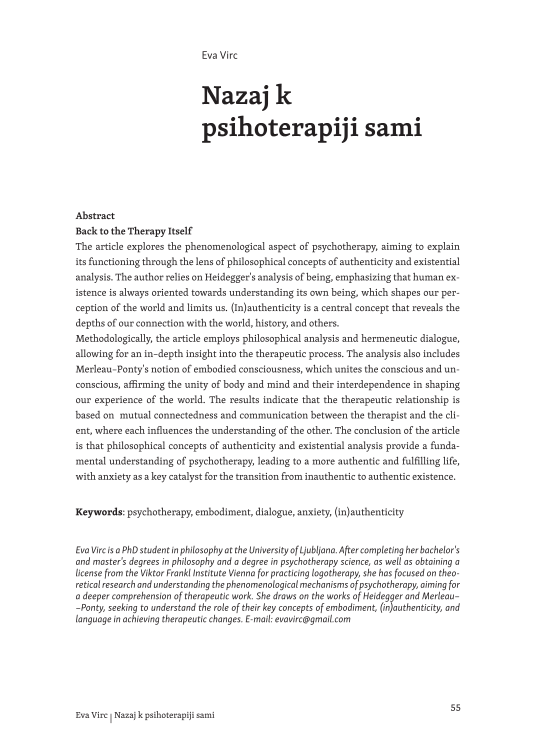The article explores the phenomenological aspect of psychotherapy, aiming to explain its functioning through the lens of philosophical concepts of authenticity and existential analysis. The author relies on Heidegger's analysis of being, emphasizing that human existence is always oriented towards understanding its own being, which shapes our perception of the world and limits us. (In)authenticity is a central concept that reveals the depths of our connection with the world, history, and others.
Methodologically, the article employs philosophical analysis and hermeneutic dialogue, allowing for an in–depth insight into the therapeutic process. The analysis also includes Merleau–Ponty's notion of embodied consciousness, which unites the conscious and unconscious, affirming the unity of body and mind and their interdependence in shaping our experience of the world. The results indicate that the therapeutic relationship is based on mutual connectedness and communication between the therapist and the client, where each influences the understanding of the other. The conclusion of the article is that philosophical concepts of authenticity and existential analysis provide a fundamental understanding of psychotherapy, leading to a more authentic and fulfilling life, with anxiety as a key catalyst for the transition from inauthentic to authentic existence.




